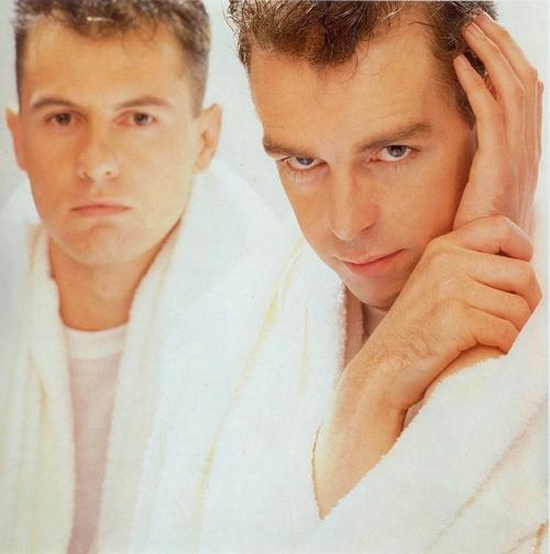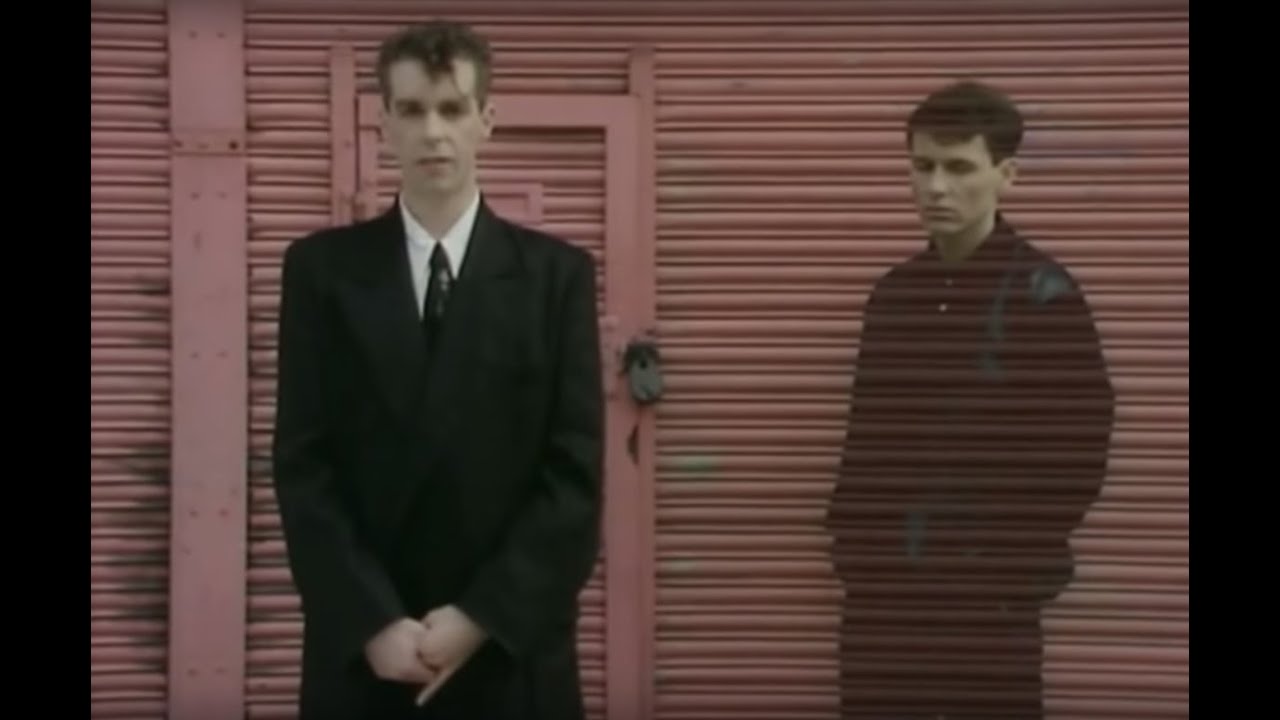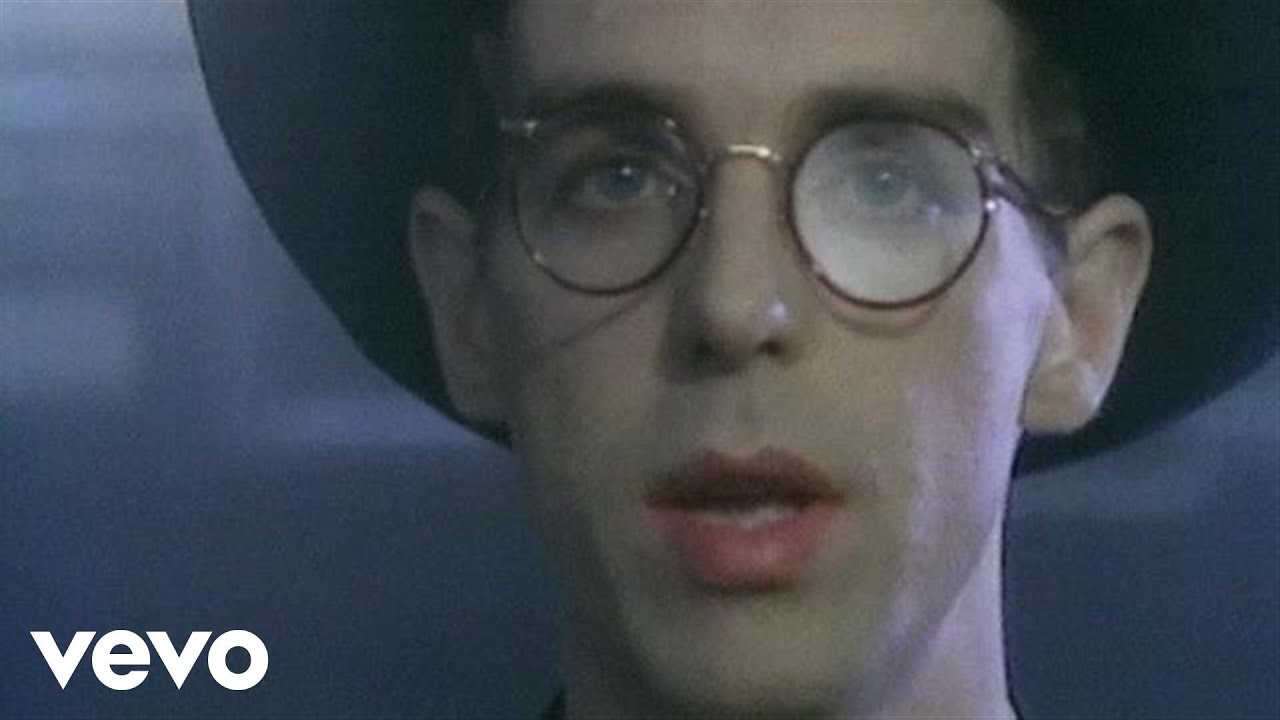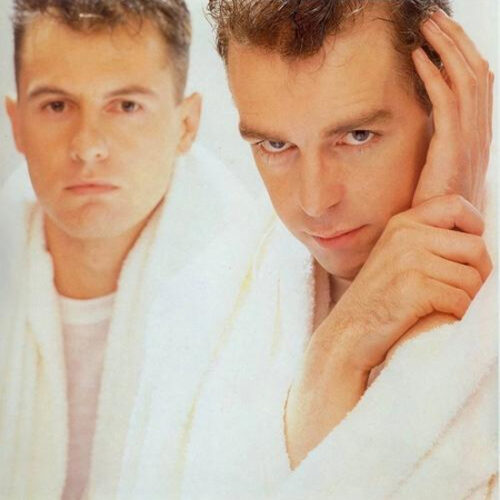What would you want from a debut album? Instant success, hit singles and a worldwide fanbase or a musical springboard which would allow exploration of a myriad of styles and influences? In 1986, with the release of Please, Neil Tennant and Chris Lowe managed to have it all.
First impressions last. Debut albums set the bar – like a first date that will define a courtship. But sometimes even the most successful debut albums do not sow the seeds for a long-lasting
relationship. Is This It by The Strokes was a perfect alignment of the sonic stars by a band who were not built to last. Their subsequent flailing has recently delivered Angles – the sound of a group desperately, and unsuccessfully, trying to rekindle their mojo. Other debuts display a phenomenon akin to radioactive decay; Definitely Maybe by Oasis is an album of blistering energy and hunger that took momentum onto (What’s The Story) Morning Glory? before dissipating under the weight of wealth and cocaine. Some debuts prove their maker’s undoing. The magnificent The Stone Roses was the sonic equivalent of tying a lead weight to John Squire and throwing him into the River Irwell.
So, perhaps, Please by Pet Shop Boys is the perfect first album. Although maybe not their best (this scribe would struggle to choose between 1988’s Introspective and 1990’s Behaviour), Please is an assured and hugely successful (three million sales worldwide and counting) record containing some of their best-known songs. However, Please also acted as lift-off for Neil Tennant and Chris Lowe’s creative wanderlust. In the quarter of a century since the its release, Pet Shop Boys have shape-shifted and experimented with a range of artistic media and each one of these personas has a umbilical rooting within Please. Be it New York disco, Italian house, classic pop, understated miserabilism, pumping Eurotrash, gay anthems, experimental electronica, rock opera or even the gauche atmospherics of their current foray into ballet – all roads lead back to Please.
The origins of Please can be traced back to one of those insane moments of fate, when Tennant met Lowe in an electronics shop on the Kings Road during the summer of 1981. They weren’t childhood friends, or introduced by mutual acquaintances, but were thrown
together by a love of gadgetry and dance music. They began to write together, initially going by the name of West End. During this period, Tennant was also working as a journalist for the magnificently glossy Smash Hits magazine. Although, while previously working for Marvel Comics he had tried to interview comic fan Marc Bolan without turning on his tape-recorder, Tennant found his style during his time at Smash Hits – once describing the late Malcolm McLaren as "a man in his thirties with a shrill voice and a big, daft hat."
Smash Hits also catalysed a second fateful meeting in the making of Pet Shop Boys, when Tennant was sent to New York to interview The Police in August 1983. At the time, he and Lowe were heavily into the Hi-NRG dance-pop – replete with cowbells and clinical sequencers – created by producer Bobby ‘O’ Orlando. Unimpressed at having to cross the Atlantic to kow-tow to Sting, Tennant grabbed the opportunity to have lunch (cheeseburger
and carrot cake) with Orlando and after a bout of flattery, the producer agreed to work with Pet Shop Boys on an embryonic track titled ‘West End Girls’.
Unfortunately, things got a little messy with Bobby O, and the band eventually signed to Parlophone after coming to an agreement with the producer about contractual rights. When Neil Tennant subsequently resigned from Smash Hits in April 1985, the magazine published a mock obituary, predicting both failure for Pet Shop Boys and that Tennant would "come crawling back on bended knees." They were wrong. While the first single ‘Opportunities (Let’s Make Lots of Money) did flop, within a few months ‘West End Girls’ would be a global hit and Smash Hits would be clamouring to feature their former deputy editor. When the song gave the band their first US chart-topper, Tennant claimed that having a number one single "feels like vaguely nothing – like having a cup of tea."
Released on March 24th 1986, Please was titled in a quest for politeness, as purchasers would request "the Pet Shop Boys album, please." After the metronomic mechanics of opener ‘Two Divided By Zero’, the album lays out the next four tracks like a future singles collection. ‘West End Girls’, ‘Opportunities (Let’s Make Lots of Money)’, ‘Love Comes Quickly’ and ‘Suburbia’ leave the listener feeling dazed and seduced, even if the production
sounds a little thin on occasion (indeed ‘Opportunities (Let’s Make Lots of Money)’ and ‘Suburbia’ were beefed-up on subsequent remixes).
The album was produced by Stephen Hague, who at that point was best known for his work with Sparks offshoot band Gleaming Spires. The two-sides of Please work on different levels. While the first half contains the battery of hits – songs that are known, loved and often misunderstood – the second side sparks soon-to-be recurring themes in Tennant’s writing, namely doomed love, self-doubt and a tension between nihilism and intellectual indoctrination. Musically, there are passages of Please that could do with some bigger cojones, but this is offset by elegance in the songcraft. Both ‘Love Comes Quickly’ and ‘Later Tonight’ contain luscious arrangements that would be further explored
on songs like their classic ballad ‘My October Symphony’, while the squelching synth lines of ‘Opportunities (Let’s Make Lots of Money)’ and ‘I Want A Lover’ would be camped up to the max by the time 1993’s Very was unleashed. These were heady creative
times for Tennant and Lowe; Pet Shop Boys could afford to hold back one of their best songs, ‘Paninaro’, as a B-side for the re-release of ‘Suburbia’.
While there is no suggestion that Please is a dreaded concept album, a number of tracks seemed to follow a central theme about an end-of-the-working-week night out; the protagonists loaded with a grim reaping of cash and a sackful of testosterone. If ‘West End Girls’ marks out the territory ("In a West End town, a dead end world"), the frugging Euro-pop of ‘Tonight Is Forever’ outlines the temporary hedonism ("We don’t need any more
when we dance / I don’t think of the future tonight"). The gentle heartbeat of ‘Violence’ harbours the threat of a random kicking, while ‘I Want A Lover’ promises the bog-eyed prospect of a shag ("No need for conversation as we’re driving home"), only to be quashed on ‘Later Tonight’ as desperation sinks in ("That boy never cast a look in your direction / Never tried to hook for your affection"). Finally, as dawn breaks and lust is replaced by
maudlin sentimentality, Tennant begs for domesticity on the closing ‘Why Don’t We Live Together?’
If sex is on the menu, the story is laced with Tennant’s androgynous delivery and lyrical obliqueness. "The woman in me shouts out / The man in me just smiles" he mutters on ‘Why Don’t We Live Together?’, while "West End girls and East End boys" could hint at endless options – with Tennant being deliberately ambiguous.
Please was released to a mixed critical reception, perhaps, in part to an underlying cattiness towards Tennant in his role of poacher-turned-gatekeeper. However, fuelled by its numerous
hit singles, the album would become a worldwide success – even breaking into the US Top Ten. In 1987, at the pre-Brit BPI Awards, Pet Shop Boys were nominated in the Best Group category and ‘West End Girls’ won the Best Single gong. Tennant would claim the evening was "a bit like the school prize giving day."
While fellow 80s bands either trudge aboard the nostalgia tour treadmill, or grope around to rediscover a lost spark of youth, Pet Shop Boys avoided the ravages of guilt-by-association and have gone on to deliver almost three decades of cutting-edge art. In that sense, the success of Please proved to be no albatross. They further refined their pop craft on 1987’s Actually, before reaching even greater heights on the Italian house masterpiece of 1988’s Introspection and the career-high sumptuous balladry of 1990’s Behaviour during a period which Tennant labels as their "Imperial Phase". What would follow would be a constant quest for alternative ways to present pop music, including via the media of theatre and opera, while absorbing technological and stylistic reference points without the need for jarring reinventions. There may well be greater debut albums, but few have provided the
endless opportunities as Pet Shop Boys’ Please.





